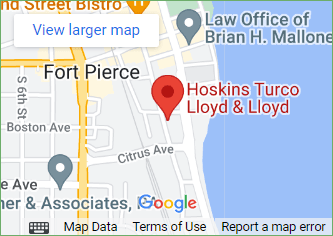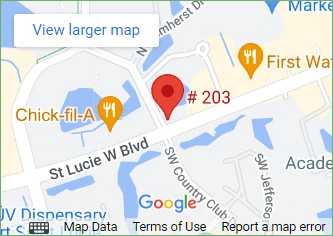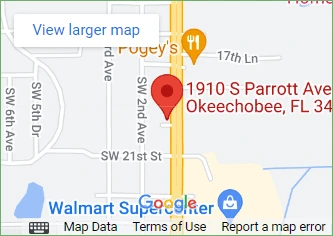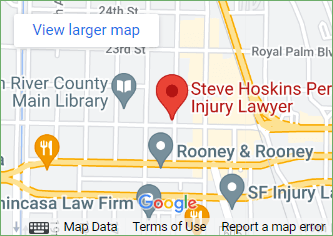Auto Accident Settlement
Common carrier accidents can involve special circumstances compared to an accident with a typical motor vehicle driver. Depending on the nature of the common carrier involved, the case could require a special claims process. Or, state or federal law could limit the liability shared by the common carrier in certain accident scenarios.
A “common carrier vehicle” is a way to refer to any vehicle responsible for transporting passengers or goods. Typical examples include:
- Semi-truck accidents
- Bus accidents, public or private
- School bus accidents
- An airport or hotel shuttle bus accidents
- Delivery van accidents
- Taxicab accidents
- Limousine accidents
- Tour bus accidents
- Car accidents with mail trucks
- Accidents involving certain other commercial or utility vehicles
There are particular requirements to be aware of when you are involved in a collision with a commercial or public service vehicle classified as a common carrier. First, it is beneficial to know the specific liability assigned to the carrier in the course of their duties. Second, you may have a limited time window to file a claim if the common carrier is a public entity, such as a U.S. Postal Service vehicle. Third, your claims process may be affected by special rules governing injury claims involving particular common carriers.
Overall, injury victims who work with an attorney stand the best chances of recovering their financial losses. Seek prompt medical attention for a diagnosis of your injuries, and then call a Florida Treasure Coast common carrier accident lawyer who can assist you with your claim.
What Is a Common Carrier Accident? (Common Carrier Definition)
“Common carrier” is a legal category that refers to a business or public entity that operates for the sole purpose of hauling people, goods, or materials.
A common carrier is usually responsible for providing business services to the public or for transporting materials that involve a publicly consumed good. For example, a truck hauling freight or a charter bus carrying people can both be considered a common carrier. However, a van filled with tools used exclusively by a plumbing repair company would likely not be considered a common carrier because it operates to serve the business itself, not public customers.
Florida Statutes §370.01 (7) defines a common carrier as follows:
“‘Common carrier’ shall include any person, firm, or corporation, who undertakes for hire, as a regular business, to transport persons or commodities from place to place offering his or her services to all such as may choose to employ the common carrier and pay his or her charges.”
What Situations Can Make a Common Carrier Liable for the Costs of an Accident Injury?
Any time a common carrier or an employee of a common carrier causes an accident because of negligence or because of an intentionally wrongful action, then the common carrier itself is liable for the costs of any resulting injuries.
Typical types of negligence seen in these cases include the following:
Failure to Exercise Reasonable Care
This is the general duty owed by every person to prevent “foreseeable” accidents from occurring. “Reasonable care” can involve following specific speed limits or rules for yielding to traffic, for example. It can also refer to actions that are careless but that do not violate any specific law. A bus driver that lets their mind wander and gets into an accident is still likely to be liable for failure to exercise the appropriate level of care.
Accident scenarios that can fall under this category include a vehicle operator that is:
- Speeding
- Ignoring traffic rules
- Driving drowsy or ill
- Under the influence of drugs or alcohol
- Driving too fast for conditions
- Failing to yield appropriately
- Driving recklessly or aggressively
- Not leaving enough space for traffic to safely maneuver
- Following too closely
Failure to Maintain Vehicles
Vehicle maintenance falls under the duties of the common carrier. Every vehicle owner is expected to keep their vehicle in safe operating condition, but common carriers have a specific duty to include maintenance and inspection as part of their regular operations (CFR §396.11).
Vehicle inspections and maintenance should involve ensuring that systems like the following are operational:
- Cab brakes
- Trailer brakes and lights
- Tires
- Mirrors
- Wheels and rims
- Windshield wipers
- Lighting systems
- Steering
Accidents caused by a faulty vehicle component can be considered as caused by negligence when the common carrier failed in its duty to regularly inspect or if it failed to address a documented vehicle issue.
Failure to Warn
Common carriers have duties to warn passengers and the general public about hazards that cannot be reasonably addressed without impacting operations. For example, tractor-trailer trucks cannot yet reasonably address poor visibility caused by the size of the trailer. Therefore, they have a duty to warn other vehicles about the large blind spots.
Bus operators, public and private, have a duty to instruct passengers on when it is safe to stand and where they should not stand. Signage should encourage standing passengers to hold onto safety straps. Any large lips or edges in the walking surface should be marked and be accompanied by visible warnings.
Common carriers that carry passengers also have a duty to warn about possible unsafe conditions ahead. A bus driver may notify passengers of a bumpy railroad crossing, for instance, just as a plane pilot will warn about upcoming turbulence.
Enforcement of safety rules like seatbelt requirements encompasses the carrier’s duty to warn, so lax enforcement that results in an injury could cause the common carrier to be liable.
Failure to Address a Hazard
When an unsafe condition is allowed to persist despite the common carrier having knowledge of it, they are creating an environment where an injury is likely. A duty to address hazards is similar to a duty to inspect/maintain and a duty to warn. However, it can also involve a common carrier that fails to step in within a reasonable time frame when a new hazard is brought to their attention.
Failure to Protect Passengers
Common carriers, public or private, that transport people are subject to even stricter duties of care. They must, in most circumstances, take the “utmost” care to ensure that they are doing everything in their power to bring the passenger safely to their destination.
Passengers are not protected from the consequences of their own actions, however (see Swilley v. Economy Cab Co. of Jacksonville, 1950). Common carriers also cannot reasonably prevent others on the road from causing an accident. Yet, in situations where an injury is caused solely by the common carrier’s operation, then the carrier may be found strictly liable even if no specific negligence occurred. Note that this is not an airtight way to prove liability in all cases, but rather a principle of the law that can make common carriers liable in situations where another commercial vehicle operator may not be.
Can I Sue a Public Entity, Like the Bus Transit Service or the U.S. Postal Service?
It is possible to file an injury claim against a public entity, but you must know the rules. In nearly all cases, a notice of a claim must be filed to the appropriate office within 30-90 days of the initial accident or the injury’s discovery. The case may then undergo a mandatory review process before the claim can be responded to.
Individuals may also have a limited statute of limitations. Whereas most car accident claims in Florida can be filed within 4 years of the accident date, claims against public entities typically have just a 3-year window.
If your accident involved you getting hit by a public service vehicle or being injured as a passenger while using a public service, talk to a Treasure Coast attorney as soon as possible to start the process. You may have to assemble strong evidence, and filing the wrong form with the wrong office can cause your claim to be time-barred.
Do Rideshare Companies Count as Common Carriers?
Not in the state of Florida. In 2017, Florida passed the Transportation Network Statute, which contained language specifically designating that rideshare services like Lyft and Uber are not common carriers. This designation protects these companies from being accountable to the higher standard that other common carrier transport lines must follow.
Rideshare accidents can still follow the typical claims process, though. There may also be large commercial liability policies available if you are injured as a passenger or by a rideshare vehicle in the course of duties. Learn more in our “What Do I Do If I’m in a Rideshare Accident?” FAQ.
Talk to a Common Carrier Accident Lawyer in the Treasure Coast Area
Hoskins, Turco, Lloyd & Lloyd are here to help you once you have been injured. Our common carrier accident lawyers in Ft. Pierce, Port St. Lucie, Vero Beach, and Okeechobee can provide you with a free consultation and case review. We can then begin working on helping you seek compensation for all of your losses, including medical bills, lost wages, and potentially your own pain and suffering.
Call (866) 460-1990 or contact us online to schedule a free, no-obligation case review. Getting money from common carriers can be difficult, but our firm reveals your best options available, so call today!
Verdicts and Settlements
$1.2 Million
$1.6 Million
Wrongful Death Settlement
$11.1 Million
Settlement for motorcycle accident
Locations
Ft. Pierce, FL 34950
Suite 203, Port St. Lucie, FL 34986
Okeechobee, FL 34974
Vero Beach, FL 32960
The hiring of a lawyer is an important decision that should not be based solely upon advertisements. Before you decide, ask us to send you free written information about our qualifications and experience.
We are a debt relief agency and attorneys. We help people file for Bankruptcy relief under the Bankruptcy Code. The hiring of a lawyer is an important decision that should not be based solely upon advertisements. Before you decide, ask us to send you free information about our qualifications and experience.
Hoskins, Turco, Lloyd & Lloyd © 2020 All Rights Reserved. Terms of Use and Privacy Policy
This site is protected by reCAPTCHA and the Google Privacy Policy and Terms of Service apply.





